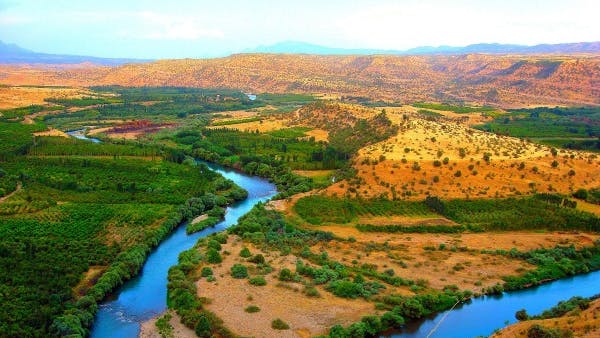Running with Jonah

“Not called,” did you say?
“Not heard the call,” I think you should say. Put your ear down to the Bible, and hear him bid you go and pull sinners out of the fire of sin. Put your ear down to the burden, agonized heart of humanity, and listen to its pitiful wail for help. Go stand by the gates of hell, and hear the damned entreat you to go to their father’s house and bid their brothers and sisters and servants and masters not to come there. Then look Christ in the face — whose mercy you have professed to obey — and tell him whether you will join heart and soul and body and circumstances in the march to publish his mercy to the world.
Two things have always struck me about the famous quote from William Booth, founder of the Salvation Army. First is his politically incorrect preaching. His references to “pulling sinners out of the fire,” “hell,” and “the damned” have the smell of sulfur about them. True, it might be a bit outdated now, but each of those descriptors could come with a Bible reference. Yet Booth’s words are not filled with anger and arrogance — his words run with tears, not unlike his Savior who wept over dark Jerusalem.
The second thing that’s striking to me is that over a century ago Christians were waiting for “the call” before venturing out for the sake of the gospel. Not much has changed. We continue to add so much mystery to “the call” that it must be accompanied by a bolt of lightning, a voice from heaven, or multiple fleeces drenched with dew. No use moving from our comfortable, cul-de-sac Christianity if it’s not necessary, if it’s not clear, if we aren’t “called.”
Jesus says, “If anyone will come after me, let him deny himself and take up his cross and follow me” (Matthew 16:24). So we already have a clear calling to begin with, and the specifics of what that looks like will follow in the path of radical obedience. God leads us in motion. In few other areas of life do we add such prerequisites to action.
The Cost of Calvary Love
Not long ago, when I was in gospel-destitute northern Iraq, I remembered a man, an Old Testament prophet, who had been there earlier. He, too, struggled with God’s calling. Here is what I wrote in my journal:
On the plains of Nineveh
Erbil, Northern Iraq
I feel a bit like Jonah — only instead of a great gourd, I have found a gnarly old poplar to shade me from the scorching noon-high sun while I scribble a few lines. From the citadel of Erbil, I have a commanding view of the plains of Nineveh, which in some ways seems to have changed little since Jonah dragged his briny sandals through here on his way to a late appointment in nearby Nineveh.
From my vantage, it is just sand-brown houses, a vast jumble of mud-brick boxes that tumble out for miles until they disappear into the desert. Here and there the flatness is spiked with minarets and drilling rigs — oil and Islam, the two power centers in Iraq. The citadel here rises to an impressive height — in part, because it has been built and rebuilt on its own rubble. Ancient Erbil has seen more than 50 centuries pass — and has traded owners at least as many times. These battlements are layered with the bones of great empires. Even today the citadel walls shelter only the latest round of ruin.
The people here have a knack for making ruins. With al Qaeda back on the rise, car bombs and suicide bombers have shattered streets and shops, killing hundreds in multiple cities across Iraq this year alone — another sorry, bloody layer of ruin.
Yet, when I think of Jonah’s journey here, it reminds me that Christ has long set his love on these people — people who have seen and made so much bloodshed. God loved to show grace to his enemies, even when Jonah didn’t. Jonah didn’t want to come here — it took a miracle to move him. Little has changed. On the flight here yesterday from Abu Dhabi, the plane was filled with Russians, Chinese, Turks, and Arabs — all looking to do business, and the country seems ready to receive them. Billboards line the roads offering happiness in a cell phone, a car, a bucket of KFC, or a Coca-Cola — and I am pretty happy with the Coke I’m drinking now, a definite improvement since Jonah was here! I wonder, though, if more people in the world know the name “Coca-Cola” than the name of Jesus Christ.
I’m staying at a brand-new hotel in Erbil, built and managed by Chinese, although the staff come from all over. This morning at breakfast I chatted with Ilda, a young waitress from the Philippines. She came here on a two-year contract to wait tables and wash dishes. She has the promise of visiting her family once during that time. Promises like that don’t always come true, but it’s a risk a poor village girl from Mindanao will take for the chance to make money. Ilda is a long, long way from home — vulnerable and alone in the bleakness of northern Iraq, but hunger and hope outweigh such risks.
As I sit here looking out over the plains of Nineveh, I think of Ilda — her bright eyes, winning smile, and the unknowing rebuke she is to me simply because she is here. Her motivation is certainly compelling, but shouldn’t the gospel, shouldn’t the King’s command, be even more compelling? Too often I have run with Jonah, away from the risks that Calvary Love demands.
